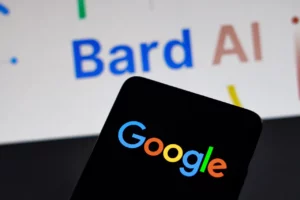Search engines have come a long way since their inception, and none have done more to advance the field than Google. From its humble beginnings as a simple web crawler to its current status as a global leader in search technology, Google has consistently pushed the boundaries of what’s possible. Central to this evolution has been the integration of artificial intelligence (AI) into its search algorithms. Today, AI powers nearly every aspect of Google’s search experience, from understanding queries to delivering relevant results. But how exactly does AI improve search results, and what does this mean for users? Let’s explore the intricate ways Google is harnessing AI to enhance the search process.
Understanding Queries: The Foundation of AI-Powered Search
At its core, search relies on accurately interpreting user queries. Historically, search engines matched keywords between queries and indexed content, often resulting in irrelevant or incomplete results. AI has fundamentally changed this dynamic by enabling search engines to understand the intent behind queries rather than just the words themselves.
Google’s AI-driven approach begins with natural language processing (NLP), a subset of AI that focuses on interpreting human language. NLP algorithms analyze the syntax, semantics, and context of a query to determine its meaning. For example, consider the query “What is the capital of France?” Traditional search engines might rely solely on keyword matching, but AI understands that the question seeks factual information about Paris. This deeper understanding allows Google to deliver precise and relevant answers.
Google’s AI also excels at handling complex queries involving multiple intents or ambiguities. Take, for instance, the query “Apple.” Without context, this could refer to the fruit, the tech company, or a recent news story about either. Through AI, Google analyzes surrounding phrases, user history, and other signals to disambiguate the query and present the most appropriate results. This level of nuance makes search feel almost conversational, bridging the gap between human interaction and machine logic.
Enhancing Relevance: Personalization and Context
AI’s ability to personalize search results is another game-changer. Gone are the days when everyone received identical search results for the same query. Today, Google tailors responses based on individual preferences, location, and browsing history. For example, if you frequently search for hiking trails near your hometown, Google learns to prioritize local hiking guides over generic outdoor tips. This personalization creates a more intimate and relevant search experience, making users feel understood and valued.
Context plays a crucial role in this process. AI considers factors like time of day, device type, and even weather conditions to refine results. Imagine searching for “restaurants” during lunchtime—you’d expect Google to surface nearby eateries offering lunch specials rather than dinner menus. Similarly, if you’re searching from a mobile device, Google adjusts its recommendations to favor quick-access options like takeout or delivery services. These contextual adjustments ensure that users receive timely and actionable information.

Smarter Ranking Algorithms: Quality Over Quantity
Ranking algorithms determine the order in which search results appear, and AI has dramatically improved their effectiveness. Traditionally, ranking depended on factors like keyword density, backlinks, and meta tags. While these metrics still play a role, AI introduces a more holistic evaluation process that considers content quality, user engagement, and historical performance.
Google’s AI-driven ranking system evaluates signals such as click-through rates, dwell time, and bounce rates to gauge user satisfaction. If a result ranks highly but users quickly abandon it, AI flags the content as less relevant and adjusts its position accordingly. This feedback loop ensures that only the most valuable information rises to the top, improving overall search quality.
Moreover, AI enables Google to detect and penalize low-quality content, such as thin articles or spammy pages. By analyzing patterns in user behavior and comparing content against verified benchmarks, AI identifies and demotes sites that fail to meet standards. This vigilance maintains the integrity of search results, fostering trust among users.
Voice Search and Conversational AI
With the advent of voice assistants like Google Assistant, AI has taken center stage in transforming how people interact with search engines. Voice queries differ significantly from typed ones, requiring specialized algorithms to parse natural language effectively. AI-powered voice recognition systems convert spoken words into text, while conversational AI interprets the intent behind queries.
Conversational AI allows Google to handle increasingly complex and nuanced requests. For instance, a user might ask, “What movies did Tom Hanks star in before Forrest Gump?” Traditional search engines would struggle with this query, but AI breaks it down into manageable components: identifying Tom Hanks as an actor, determining his filmography, and filtering results chronologically. This capability makes voice search feel intuitive and engaging, blurring the lines between human conversation and machine response.
Visual Search: Bridging Text and Image
Another exciting frontier in AI-powered search is visual search. While traditional search relies on textual input, visual search leverages image recognition and computer vision to analyze photos and videos. AI algorithms identify objects, colors, textures, and even emotions within images, enabling users to search for items visually.
For example, imagine taking a picture of a dress you admire and using Google Lens to find similar styles online. AI analyzes the image, extracts key features, and matches them against a database of products. This capability has proven invaluable for fashion, interior design, and e-commerce, empowering users to discover and purchase items effortlessly.
Visual search also extends to landmarks, logos, and even handwritten notes. By recognizing patterns and structures within images, AI bridges the gap between text-based and visual search, creating a more inclusive and versatile experience.
Predictive Search: Anticipating Needs
Predictive search represents another leap forward in AI-driven search technology. By analyzing user behavior, preferences, and historical data, Google anticipates what users might need before they even ask. For instance, if you regularly search for weather updates in the morning, Google might preemptively display the forecast on your home screen or in your search suggestions.
Predictive search also enhances productivity by suggesting tasks based on context. If you’ve been researching a topic for weeks, Google might recommend related articles or upcoming deadlines. This proactive approach saves time and reduces cognitive load, making search feel almost anticipatory.
Ethical Considerations and Bias Mitigation
While AI brings immense benefits to search, it also raises ethical concerns. One major challenge is mitigating bias in AI models, which can inadvertently perpetuate stereotypes or exclude marginalized groups. Google addresses this issue by continuously auditing its algorithms for fairness and accuracy. Researchers work tirelessly to train models on diverse datasets, ensuring that AI reflects the richness and complexity of human society.
Transparency is another priority. Google provides detailed explanations of how its AI systems work, helping users understand why certain results appear. This openness fosters trust and empowers users to make informed decisions about their online experiences.
The Future of Search: Beyond Keywords
Looking ahead, AI is poised to transform search in ways we can scarcely imagine. Quantum computing, advanced neural networks, and multimodal learning are just a few areas where Google is investing heavily. These innovations promise to deliver even more intelligent and responsive search experiences, blurring the line between human intuition and machine intelligence.
Imagine a future where search engines anticipate your needs before you articulate them, offer personalized insights based on context, and adapt dynamically to changing circumstances. This vision of search as an omnipresent assistant aligns perfectly with Google’s mission to organize the world’s information and make it universally accessible.
Google’s use of AI to improve search results represents a watershed moment in the evolution of digital technology. By understanding queries, personalizing results, refining rankings, and embracing new modalities like voice and visual search, AI has elevated the search experience to unprecedented heights. What once began as a simple keyword-matching exercise has evolved into a sophisticated, adaptive system that anticipates and fulfills user needs.
As AI continues to advance, Google stands at the forefront of this transformation, redefining how we interact with information. Whether you’re a casual user or a professional researcher, the power of AI ensures that search remains a cornerstone of modern life. And as Google pushes the boundaries of what’s possible, one thing is certain: the future of search looks brighter—and more intelligent—than ever.
















Add Comment